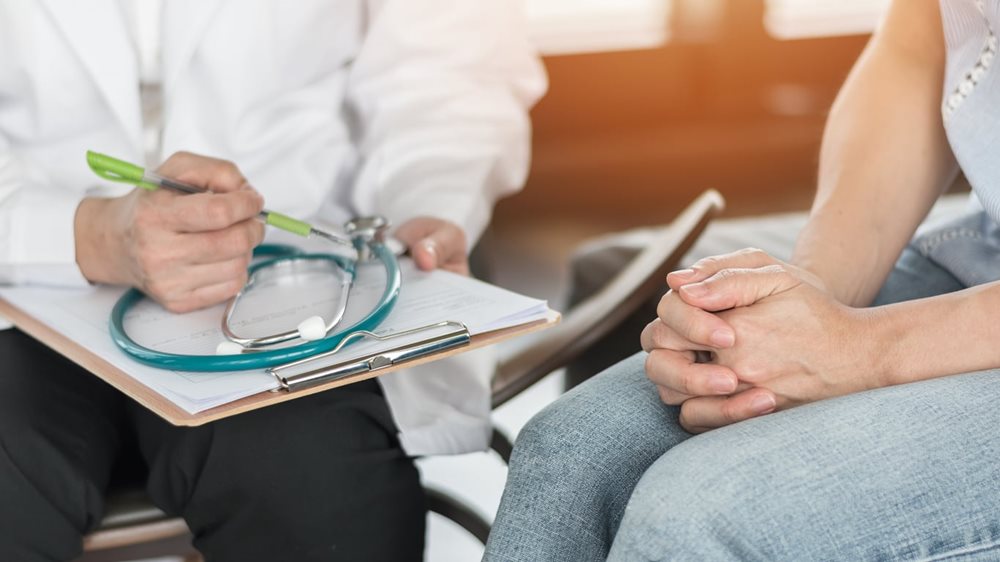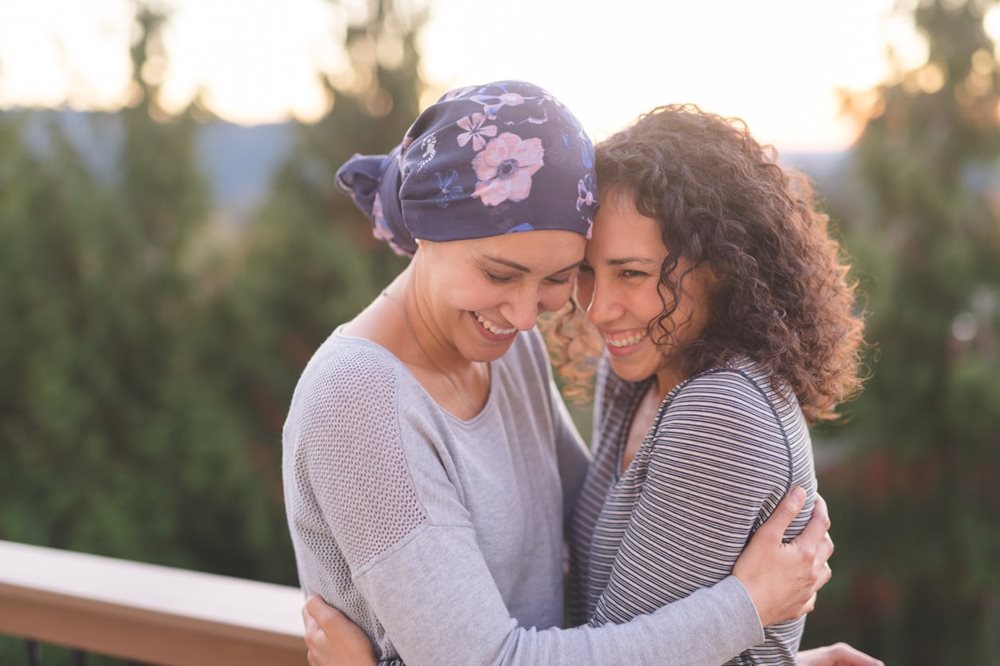Cancer & Mental Health
A cancer diagnosis not only impacts your physical health but it can have a huge impact on your emotional health too. Dr. Susan O’Flanagan, Senior Clinical Psychologist in the Psycho-oncology Service at St. Vincent's University Hospital, explains how you can care for your mental health from initial diagnosis to treatment and beyond.
Navigating the Initial Diagnosis

“In general,” Susan notes, “people navigate and adjust to a cancer diagnosis quite well when they have good support from their medical and nursing team, community, friends and family. Research estimates that up to one-third of people in acute hospitals experience mental health challenges such as depression and anxiety and may require more specialised Psycho-oncology assessment and intervention”
The initial diagnosis is often the time when people experience the highest levels of distress. “Patients often describe it to me as being like an earthquake,” she says. “Some of the common emotions people experience are feelings of disbelief, fear, anger, stress, loss of control, guilt, isolation and sadness. All these emotions can be at quite high levels at the point of diagnosis but they represent a healthy and normal adjustment reaction - it is important to bear in mind that there’s no right way to cope with a diagnosis.”
Feeling a Loss of Control
“At the point of diagnosis, patients often describe feeling a loss of control and it’s true, a lot of things do become out of your control at that point,” Susan explains. A good strategy for dealing with this is to focus on the basics. “Focus on things that nourish you,” Susan advises, “things like good sleep, rest, eating well, gentle exercise, taking time for self-care and time to process and integrate what has happened.”
Don’t be afraid to let the people around you take care of the practicalities. “Look at the circle of support that already exists in your life and ask them to (or let them) provide practical support.” That practical support might be anything from providing meals to transport or childcare support. If you’re a friend of someone going through cancer, remember that your practical support at this time can be invaluable so don’t be afraid to reach out and help. It can be most helpful to offer something specific rather than a general offer of support.
Community-based supports are a fantastic resource and there are many provided by organisations like the Irish Cancer Society and the many cancer support centers around the country. “These services run a lot of programs for people at the point of diagnosis and throughout treatment and it can be helpful for some to meet other people who’ve been through a similar experience,” Susan explains.
During Treatment

Going through treatment can often leave you feeling overloaded. “People undergoing Chemo often describe suffering from ‘chemo brain’ which can make decision making and taking in information harder,” Susan says. Writing down questions ahead of your appointment can be a practical way of remembering what you want to ask. “Remember that there are no silly questions – if they’re important to you then they’re important,” Susan advises. “Bringing someone with you to the consultation can also be really helpful as it may be a challenge to take in the medical information provided or to ask all your questions yourself.”
Treatment can take away your sense of autonomy and independence, to counter this, it can be helpful to focus on things you can still enjoy that that give you a sense of pleasure and achievement.
After Treatment
You might feel that at the end of treatment all your worries should magically disappear and that you will go back to life as normal. However, that’s often not the case. “You’ve had all these people involved in your care and looking after you and answering your questions,” Susan explains. “So, after treatment we can see escalations of anxiety. But, it’s important to know that it’s a normal reaction to completing treatment and not having as many supports in place.”
Processing Everything
After treatment is also a time when people start to process the emotional impact. “You might become more distressed by things like your fatigue levels or returning to work,” Susan notes. “Issues around body image can come up at that point too and very often people might have a fear of recurrence or a fear around attending for scans and future appointments.”
There is a lot to navigate at this point and all of it is normal. “A lot of people who come to me would say, I should feel better and I should be coping better than this when I’ve finished my active treatment,” Susan explains. “For some people, it’s a time where there are multiple stressors and people may need additional supports to carry them through that phase and into recovery.” Don’t be afraid to reach out for help.
Advice for Helping a Friend or Family Member Who’s Going Through Cancer
If a friend or family member is going through any of the stages of cancer treatment and recovery you can be a great source of help. “One of the most important things the research says is that being able to be open about how you feel can help you cope better,” Susan explains. “Providing a space for someone to be as they are and to express themselves is really the most important thing that you can do. It is most helpful to listen and validate a person’s concerns rather than jumping to providing premature reassurance or offering solutions quickly.” Susan notes that “It is also important to note that many patients report a reduction in support when their active treatment (surgery, chemotherapy and radiotherapy) has finished. Given that this is a time where people tend to struggle with many psychosocial issues it is important for family and friends not to solely check in and provide support at the time of diagnosis and treatment but also when treatment is over”.